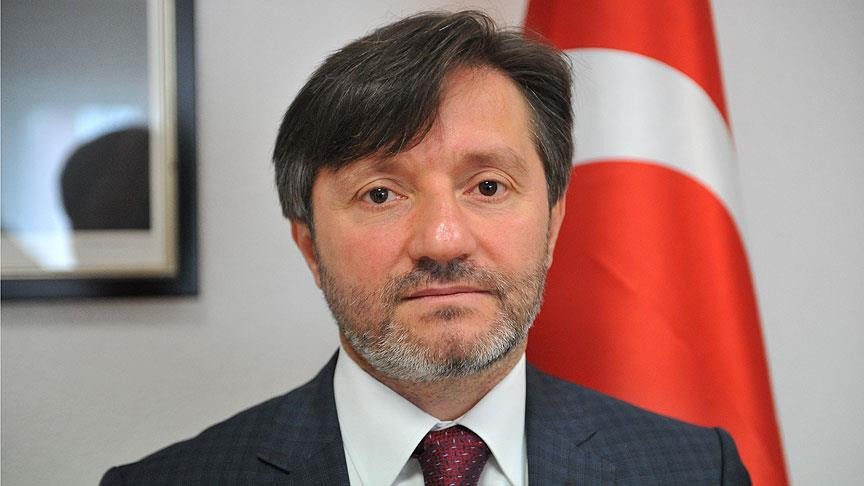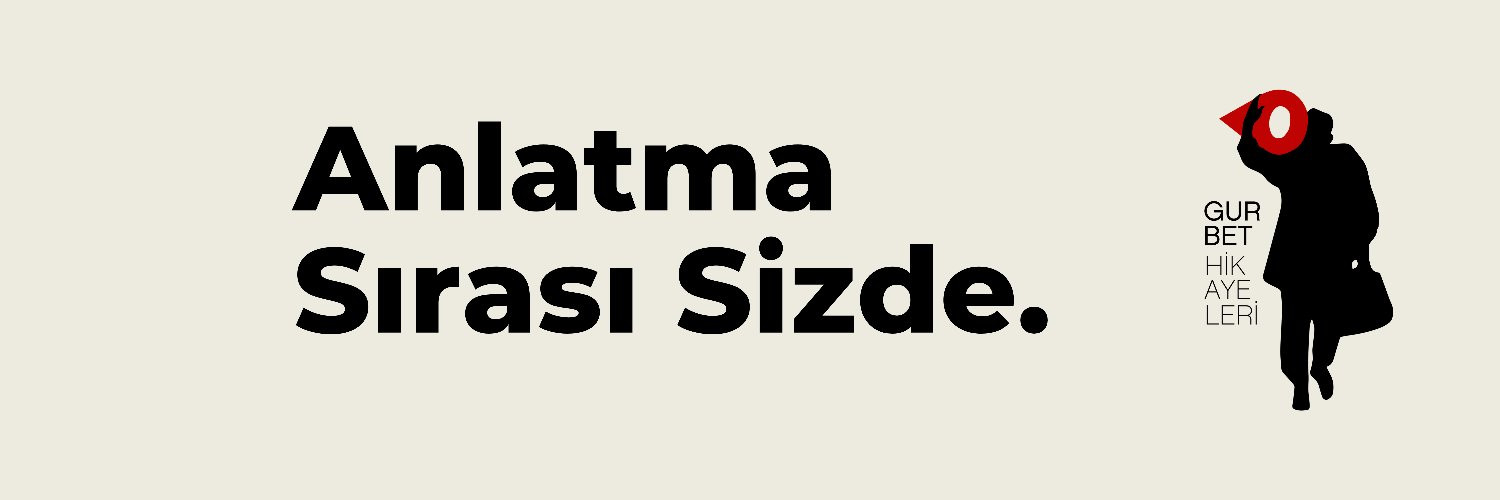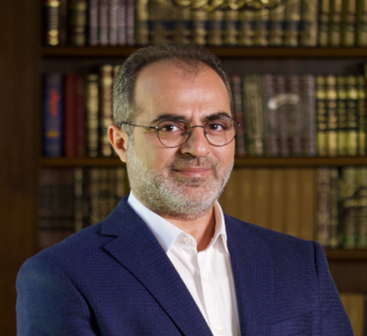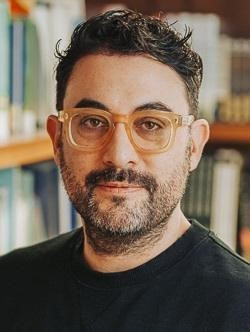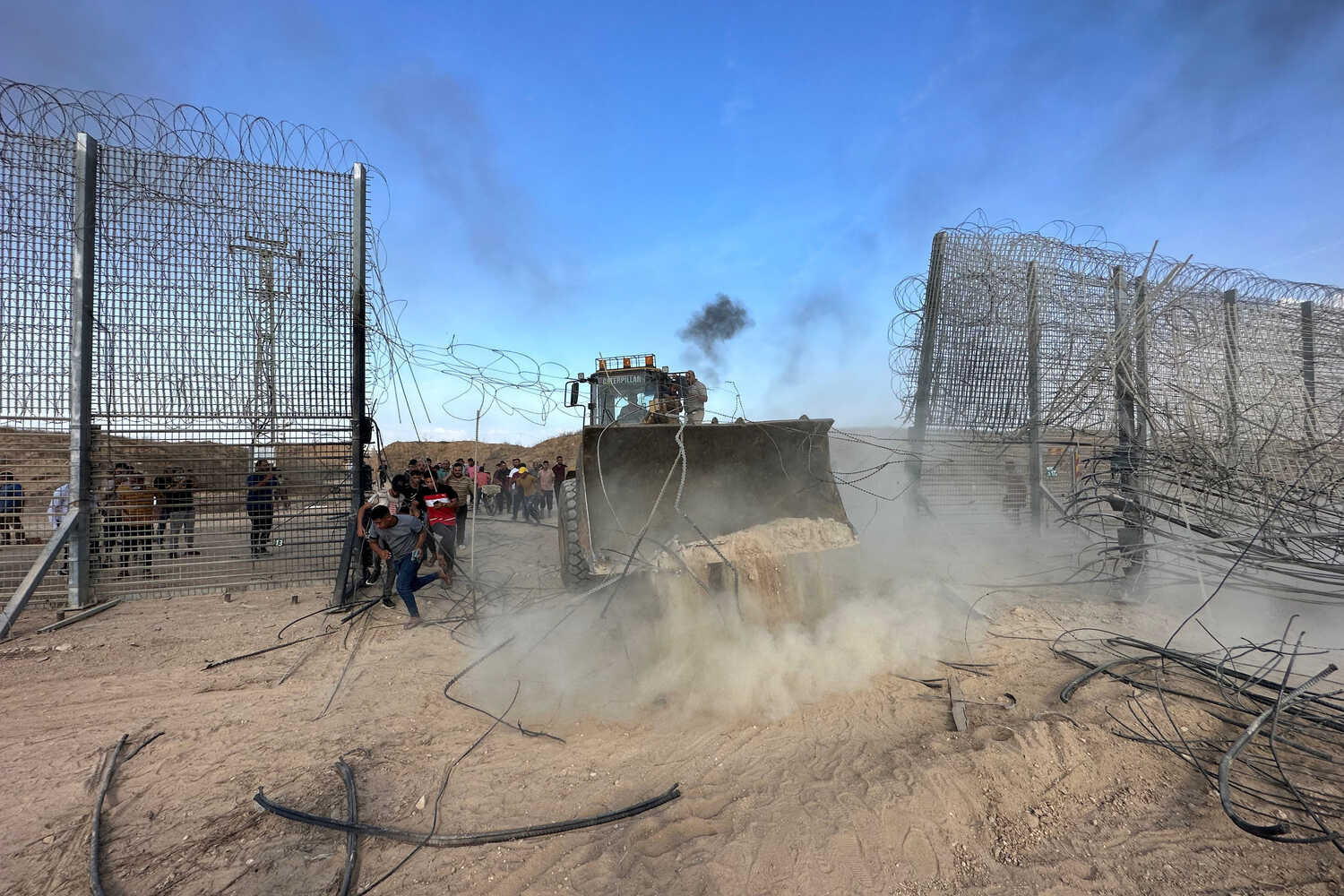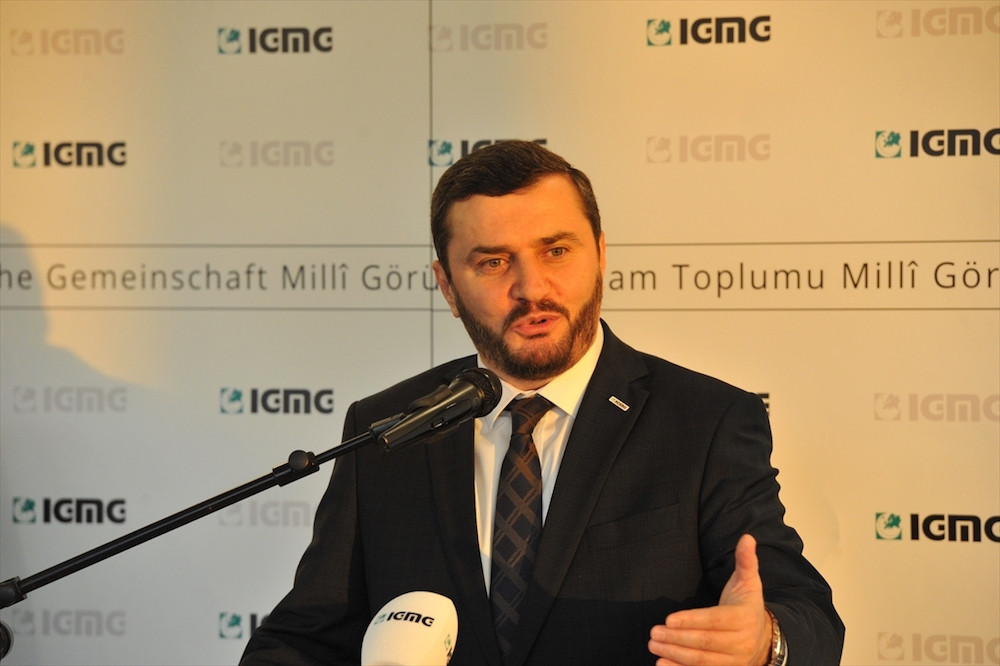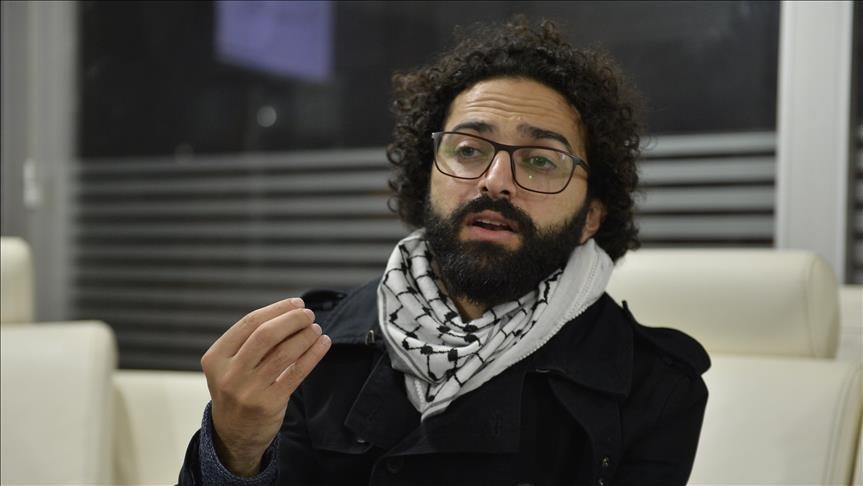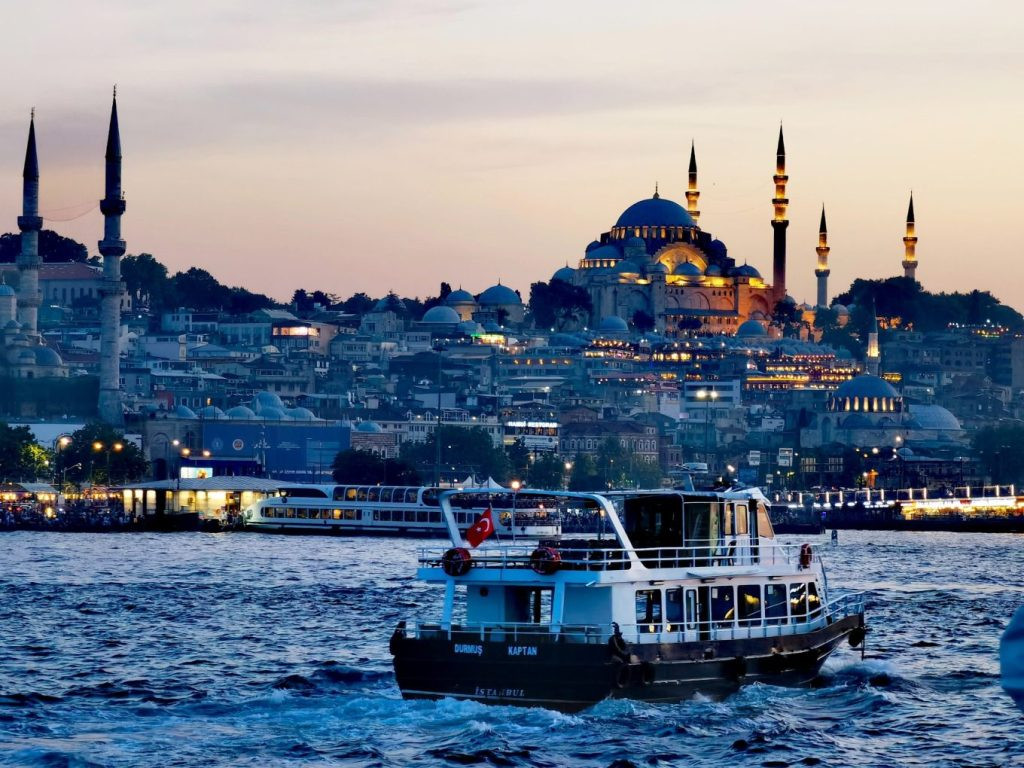
Interview with International Students in Istanbul
Abdullah, Syria
Could you introduce yourself?
My name is Abdullah, and I am 26 years old. I come from Damascus, where I did my high school, but I had no clear idea what I wanted to study at university. So, I attended medical school for a couple of years before I moved to Istanbul, Türkiye, to assume Computer Engineering as a scholastic path. I completed my bachelor's degree at Üsküdar University, and upon graduating, I enrolled in a master's program at Marmara University.
Have you had the opportunity to engage with student organizations, especially country-specific diaspora organizations, while you were studying/as you are studying? If so, in what ways were they influential or beneficial for your development here as a student?
I don’t have a direct yes or no answer since my first school year in Türkiye was the beginning of the COVID-19 restrictions, so the already limited connections I could make in the first semester had to be more limited. Nevertheless, I enjoyed working with a group of Arab-Turkish university students who gathered regularly to do “sohbet” for the first two years. I also found Istanbul, especially its historic quarters, to be a rich environment in which to meet people from around the globe, which presented a continuous opportunity to grow and learn.
How was the language-learning process for you? Did you find opportunities for language exchange or practice with local students, and how did this contribute to your language-learning journey?
A rollercoaster! But it was definitely an enjoyable one, alhamdulillah. I can hardly claim to speak Turkish, but I am more than self-sufficient when it comes to comprehension; that’s because I learned Turkish from the street and a lot of unplanned conversations here and there. My university education was -unfortunately- in English; hence, I couldn’t rely much on school for that aspect.
Emina, Bosnia and Herzegovina
Could you introduce yourself?
Assalamu alaikum! I am Emina Maglić, and I was born and raised in Bosnia and Herzegovina. Currently, I am a bachelor's degree student at Marmara University in Istanbul. I embarked on this journey roughly six years ago, back in 2018, when I decided to move to Turkiye to pursue my higher education. My academic pursuit started with studying the Turkish language with other foreign students in a one-year TOMER program. Upon successful graduation, I also moved to learn Arabic for one year, where the intensive courses prepared me for my bilingual studies (Turkish and Arabic) of theology. Currently, I am a full-time student at the Faculty of Theology at Marmara University, studying at the Department of International Theology.
How did you decide to pursue higher education in Türkiye? What were the application procedures, such as governmental scholarships, tuition fees, and applying to a specific university, etc.?
While I planned to continue my education in Sarajevo, Bosnia and Herzegovina, God had a different plan. It was an unfolding of circumstances and events that led me to consider living and studying in Turkiye. Upon graduating from secondary school as a valedictorian, my professors encouraged me to consider studying abroad through a governmental scholarship scheme. While deciding between Japan and Turkiye, considering the area of my interest (theology) and close geographical and cultural proximity, Turkiye seemed like a more cogent choice. Shortly after submitting my application for the Turkiye Diyanet Scholarship, I was invited for a series of examinations and, finally, an interview. The application system was conjoined with the YTB, so it was fairly systematic and convenient. After a couple of months, I was informed that I was awarded a fully-funded study opportunity at my preferred school, which was Marmara University, Faculty of Theology.
Were there any support services or resources provided by the university that either met or exceeded your expectations in terms of helping international students integrate into academic and social life?
Before attending the classes, unfortunately, I had very limited information about the educational system in Turkiye (or my preferred school specifically). English versions of the websites usually don't provide the same detailed insight into resources available to prospective students compared to their Turkish version, and considering the linguistic barrier at the beginning, it was very hard to attain much information; therefore, there was very little to base the expectations on. TOMER office was rather keen to help us navigate our social life in Istanbul, but as for the academics, there were no specific support services. Aside from a need to update official English websites, I think it would be appropriate to establish an orientation program or counseling services to help international students with assimilation and more comfortable integration into academic life.
Hossam, Morocco
Could you introduce yourself?
My name is Hossam, and I am Moroccan. I am 26 years old. I studied Physics in Morocco in Rabat for around four years before coming to Türkiye. Then, I was searching for ways to come to Istanbul to complete my studies. There was an agency that told me if I came, I could save all the modules I studied in physics and complete my studies. I liked the idea, and I came to Istanbul after I was chosen for the mechanical engineering program at Haliç University, as it was one of my goals since I was in high school to do engineering. However, all the promises of saving my modules and completing what I started were lies, so I started from zero.
What were your expectations before coming to study in Türkiye, and how have they matched up with the reality of your experience so far?
Before I came to Türkiye, I had high expectations of the quality of education until I started my first month, and I realized that my expectations were higher than the reality. Personally, I think that Türkiye doesn't have high-quality teaching as far as I experienced. It has a massive number of universities and manufacturers, but the education they have is based on quantity, giving you a lot of things with a poor explanation, and in the exams, they make it so hard for students.
What advice would you give prospective international students considering higher education in Türkiye?
To calculate your chances well before you come to study in Türkiye, you have to do your research on your own and prepare for your classes. If you are planning to work and study at the same time, it will be so challenging as the professors will fail you if you pass a certain number of hours of absence (it happened to me before). Yet, besides that, Türkiye has an amazing environment for the students if they have the means; the campuses are usually nice and chill, and you can find libraries everywhere in Istanbul, which makes you focus on your studies better.
Said Ramadhan, Indonesia
Could you introduce yourself?
My name is Said Ramadhan. I'm from Indonesia, and I study Islamic theology at Istanbul University. I came to Türkiye in November 2020 to study theology because Türkiye has always been one of my dream countries to study. Also, the fact that it has a massive Islamic history and is a Muslim-friendly country affected my choice.
What are the strengths and weaknesses of the higher education system in Türkiye, from your perspective as an international student?
The main strengths are the opportunities for student exchanges, especially the cross-European equivalency of the education system. So, there is no need to take an equivalency when you want to continue your studies at different European universities. Also, you have many opportunities for conditional scholarships here. On the other hand, sometimes international students have difficulties accessing information due to a lack of it. The education system is independent and self-learning, and the language is difficult to understand because many majors use Turkish, which is an obstacle to graduating on time.
Were there any support services or resources provided by the university that either met or exceeded your expectations in terms of helping international students integrate into academic and social life?
Yes, there are many interesting clubs to join to develop life skills. There are opportunities for student exchanges and many internships, which are easy to get for international students. But, sometimes, we also need to network with other people to learn about those projects and programs we didn't know about before, as several university activities are only for local people.
Sumayya Haroub, Tanzania
Could you introduce yourself?
My name is Sumayya Haroub Mohamed, and I am from Tanzania. I am currently studying at Istanbul University in the Faculty of Business Administration, and it is my second year. I am a scholarship student. I have been in Istanbul, Türkiye, for almost two and a half years. I first completed my TOMER (Turkish as a Foreign Language Courses) at Istanbul University Language Center for eight months and started my studies afterward.
What were your expectations before coming to study in Türkiye, and how have they matched up with the reality of your experience so far?
I knew it would never be easy from the beginning as the thought of studying my course in another language than English was always in my head, and I am studying the course that I desire in the Turkish language, which I find very hard to cope with. But I am still trying my best to achieve my goals. So far, language is the only challenge that I have been facing and am still facing, but other things like the experience of exploring, learning new things, meeting new cultures, and meeting people from different parts of the world are fun for me. This all matches reality as I believe that life is full of competition wherever I go, and that's what makes it meaningful, so I keep on moving to try to learn more.
Have you had the opportunity to engage with student organizations, especially country-specific diaspora organizations? If so, in what ways were they influential or beneficial for your development here as a student?
I actually didn't get to have the opportunity to engage with student organizations at all. I am still new to this, but I am part of the Tanzanian Community in Türkiye (TCT), which is a diaspora organization. It hasn't been that long since I joined the organization, but I learned a few things about how to survive in a foreign country as a foreigner and a student, and it made me strong enough to encounter most of the challenges. Apart from that, I joined a Turkish organization known as Assalam, which also has a branch in my home city, Zanzibar. I joined Assalam to experience and learn how I can help the people in my country and those in Türkiye by engaging and increasing my network. So far, it has made a huge influence in the past year since I joined the organization. I learned many things, which helped me with experiential and academic learning, as I have been learning more about management, volunteering, and much more. Coming to Türkiye couldn’t be a wrong decision for me; even though there are things that make me want to go back, I still have to change myself by learning many things far from home.
Tamari, Georgia
Could you introduce yourself?
My name is Tamari, and I’m from Georgia. I am a senior at Istanbul Sabahattin Zaim University, Faculty of Arabic Islamic Sciences.
How did you decide to pursue higher education in Türkiye? What were the application procedures, such as governmental scholarships, tuition fees, and applying to a specific university, etc.?
Studying in Türkiye has been my dream since I was a child. My father studied in Kayseri and graduated from the Department of Islamic Studies. That's why we always had guests at our house during Ramadan, and after the Tarawih prayers, my father would preach to them. I always admired my father and wanted to read his books, learn about my religion, and teach others. When I finished high school, I had the opportunity to realize my dreams, and with family support, I came to Türkiye to study at the university.
What were your expectations before coming to study in Türkiye, and how have they matched up with the reality of your experience so far?
My expectation from the education I would receive in Türkiye was to be a starting point in shaping my future. My university environment, professors, and friends helped me fulfill these expectations.
Have you had the opportunity to engage with student organizations, especially country-specific diaspora organizations, while you were studying/as you are studying? If so, in what ways were they influential or beneficial for your development here as a student?
I had the opportunity to meet Georgians who had to immigrate from Soviet Russia years ago and settled in Türkiye. I got involved in their associations and foundation activities in various fields, and we worked to do beneficial things for Georgians living here and in our country. As a student, it helped me express myself, understand the importance of teamwork, and develop myself.
Abdullah, East Turkestan
Could you introduce yourself?
My name is Abdullah, and I was born and raised in Turfan, East Turkestan. With the support of my family, after completing my memorization of the Quran at an early age, I pursued my education in Turfan. During this time, alongside formal education, I secretly received an education in Islamic Sciences and intensely focused on developing myself in this field. I aspired to attain a higher position in Islamic Sciences and ensure the correct portrayal of Islam among Uyghurs. Thus, I embarked on a journey of knowledge to Egypt in 2016 for higher education. However, in 2017, due to the agreement between the Egyptian government and the Chinese regime, which led to the initiation of a policy of arresting and deporting Uyghur students to China, I was compelled to migrate to Türkiye. I completed my undergraduate education at Istanbul Sabahattin Zaim University in 2021 and commenced my master's degree in Basic Islamic Sciences at Marmara University in the same year. Currently, I am writing my thesis and an instructor at Istanbul Sabahattin Zaim University.
Were there any cultural or lifestyle factors that influenced your decision in Türkiye, and how did these factors affect your education and life throughout your student life here?
The fact that Uyghur Turks and Anatolian Oghuz Turks belong to the same lineage brings linguistic, customary, and cultural similarities. Upon first setting foot at Istanbul Atatürk Airport, realizing that officials spoke the same language as me and being greeted with such warmth filled me with indescribable joy. Throughout my time in Türkiye, I constantly felt a sense of similarity in language, religion, and culture. I never felt like a stranger in these lands; Türkiye embraced me, and I embraced Türkiye.
Since the Chinese government did not allow Islamic science education in East Turkestan, Uyghur Turks secretly pursued education in Islamic Sciences. Because of strict governance and oppression, educational methodologies were outdated and not integrated into modern educational systems. However, Islamic or Religious Sciences education in Türkiye has a longstanding tradition in theological faculties. Efforts are made in these faculties to integrate and develop the old theological system into the modern educational system. This context significantly influenced my academic life and perspective on Islamic sciences. I also studied at the Faculty of History. My education in Türkiye led me to believe I should not limit myself only to classical religious sciences. I concluded that I needed to learn different foreign languages and acquire deep knowledge in other disciplines that could support Islamic Sciences. Thus, I focused on self-improvement accordingly.
What are the strengths and weaknesses of the higher education system in Türkiye, from your perspective as an international student?
As an international student studying in Türkiye since 2017, I believe I have partially experienced the strengths and weaknesses of Türkiye's higher education system. Türkiye having trained scientists in many fields and possessing a well-equipped academic staff creates a strong impression that it has a quality human resource, the most critical component of an educational system. Another strength of Türkiye's higher education system is that the education is mostly conducted in Turkish. Education is provided in Turkish in various fields, from medicine to engineering, from Islamic Sciences to international relations, and there are sufficient Turkish resources available. Türkiye also supports higher education students through KYK (Higher Education Credit and Hostels Institution) scholarships and civil society organizations. This situation contributes positively to Türkiye's international effectiveness by enabling Turkish students to integrate with different cultures. Another strength of higher education in Türkiye is that there are internship opportunities in many fields. Students can intern in a wide range of areas, from medicine to Islamic Sciences, from librarianship to engineering.
However, alongside the strengths of the Turkish higher education system, there are also weaknesses. Overall, foreign language teaching, especially at the middle and high school levels, does not achieve the desired success, which has negative implications for higher education. Language teaching generally progresses by focusing on grammar and reading comprehension, while there are significant deficiencies in speaking and writing skills. Furthermore, the requirement for exams to adhere to specific criteria, the compulsion of irrelevant exams, or some exams being based on rote learning are some weaknesses of Turkish higher education. Finally, I would like to mention that international students who complete their higher education in Türkiye face visa issues when re-entering their country. I believe that the entry of a student who has received an education in Türkiye for many years should not be evaluated in the same way as other foreigners.
İnga, Georgia
Could you introduce yourself?
My name is İnga, and I'm Georgian. I am a senior at Istanbul Sabahattin Zaim University, Faculty of Arabic Islamic Sciences.
How did you decide to pursue higher education in Türkiye? What were the application procedures, such as governmental scholarships, tuition fees, and applying to a specific university, etc.?
Since Georgia is a Christian country and very few people know about Islam or live Islamically, I always wanted to learn the true Islam and then teach it to our youth, especially since Islam was misrepresented to us in our schools. Therefore, I first received a two-year Quran course education in Türkiye and then decided to continue my education at university. My family supported this decision, and I came to Türkiye to study with my own means.
What were your expectations before coming to study in Türkiye, and how have they matched up with the reality of your experience so far?
Since there were very few people around me studying in Türkiye, I didn't have much information about education here, but of course, I had some expectations. My expectations from the department I would study in were exceptionally high. I wanted to learn Islamic sciences at the highest level and improve my Arabic. During my studies, I realized that the education I received at school alone was not sufficient, but I had many opportunities in Istanbul to compensate for this deficiency. Although this process was challenging for me, I can say that my expectations regarding education were fulfilled.
Have you had the opportunity to engage with student organizations, especially country-specific diaspora organizations, while you were studying/as you are studying? If so, in what ways were they influential or beneficial for your development here as a student?
During university in Istanbul, I had the opportunity to engage with diaspora organizations that carry out various educational and cultural activities here. We planned projects with them that we could implement in our homeland, and I had the chance to evaluate my country through their eyes. I saw not only the needs and deficiencies in Georgia but also in the Islamic studies in the Caucasus region. I tried to identify which areas I needed to work on more and to develop projects regarding the educational programs I would offer along with my department. I hope I have been able to improve myself.
